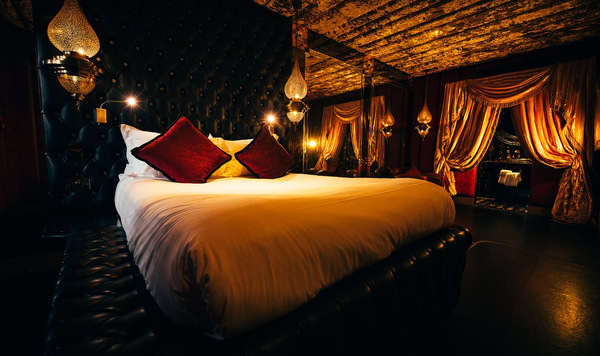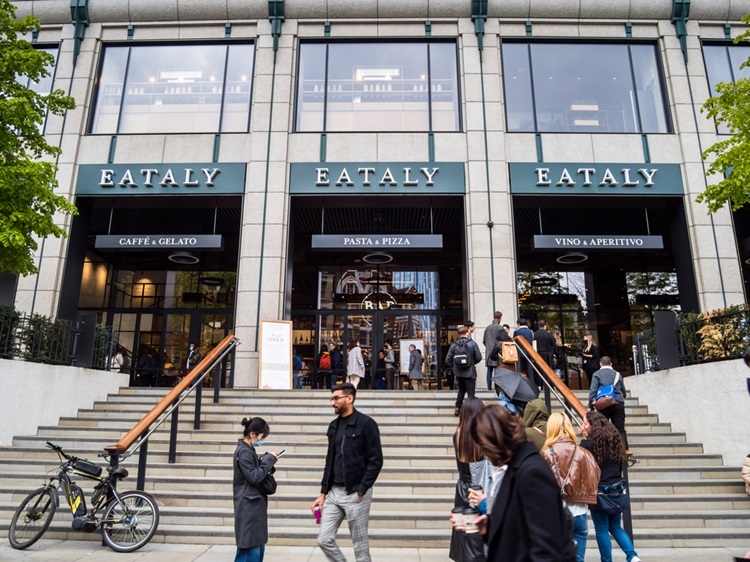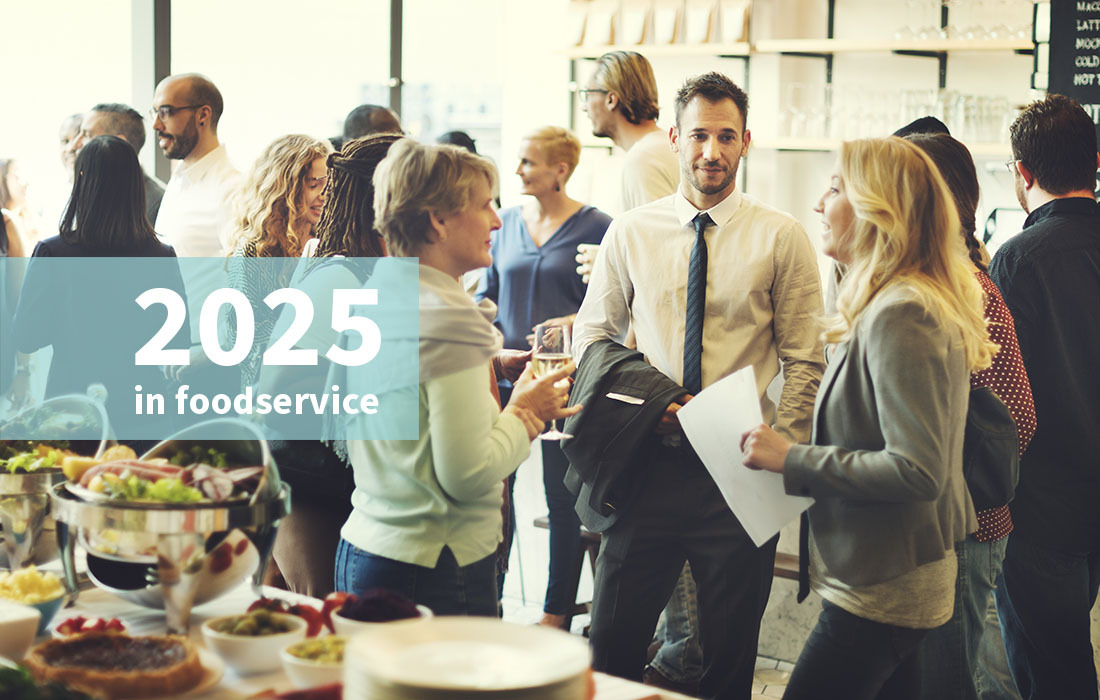Technology Prospectus 2019 – Revenue management systems
As revenue management systems become smarter, forward-thinking businesses can look forward to greater profitability and guests that come back for more. Rosalind Mullen reports
The range of data that can now be collected, however, means revenue management has become far more complex. Todayâs managers need an agile strategy, managing cost of acquisition, consumer sentiment and guest reviews with travel data and intelligence. Fortunately, there is plenty of sharp revenue management technology out there to help them â" and itâs getting better all the time.
But while hoteliers use technology to manage yield across rooms and an array of dinner, bed and breakfast packages, the potential of meetings and events (M&E) has been neglected by technology investment. This market has the potential to bring in up to 60% of a hotelâs revenue, so itâs no wonder operators are looking for the technology to help them.
As Diana Michelli, director of sales and marketing at Marriott Hotel Regentâs Park, London, says: âWe know with bedrooms where we stand and we have enough tools â" but with meetings and events I think itâs still an area under
development and sometimes the staff on site havenât had access to the right resources.â Barbara Fulton, group manager at Valor Hospitality Europe, agrees: âWeâve got so much technology around the roomsâ side of the business and for M&E it can have the same positive impact. Itâs often thought of as a subsidiary revenue stream, but in reality, itâs really valuable for a business. In our company, the same revenue goes into the corporate room stream as it does for M&E, so itâs a big part of the business.â
MAKE A CHANGE
Happily, there is technology out there that optimises the entire hotel and not just the bedrooms. One of the first is Smart Space by IDeaS, a cloud-based application, requiring no additional hardware or integrations, that takes the guesswork out of forecasting M&E business.
It crunches data to understand booking trends and patterns, enabling M&E teams to forecast and price more effectively. Dynamic reports provide quick filters by day, lead time, market segment, booking type and status of business, with year-over-year performance comparisons.
Warren Mandelbaum, sales director EMEA at IDeaS, explains: âTraditional revenue management systems do not take meeting rooms and function space into account when analysing data. However, with Smart Space, M&E revenues, including F&B, spa and golf along with meeting room hire and equipment, is maximised by visualising data extracted from the sales and catering system. It analyses trends, pace and pickup, assisting with accurate forecasting and the ability [for managers] to understand when to hold back space for higher-rated business, as well as when to amend a pricing strategy to take into account changing demand patterns.
He adds: âBeing able to measure meeting room attendee density, rather than simply occupancy to understand conversion and true performance, is invaluable to an M&E manager wishing to optimise space and maximise revenue through the contribution of their meeting space. This brings M&E into the 21st century and puts it on the map as a revenue stream to be taken seriously.â
Radisson Hotel Group is one company that has introduced Smart Space to create a more holistic revenue strategy. Christine Wassell, director of revenue optimisation for Radisson in the UK, Ireland and Western Europe, oversees 72 properties, some mainly attracting corporate conferences, others bringing in social banqueting events. She says the new technology has helped each M&E team to better collaborate with the revenue management teams and to balance demand for meetings and catering business against guest room strategies.
âSmart Space makes it a lot easier for us to study our booked and lost business and better prioritise sales team efforts,â says Wassell. âTo be able to pull vast sums of relevant data and see that presented in an intuitive and consumable format is such an advantage. Itâs the first step of some very exciting progress weâre seeing in meetings and events.â
KNOW YOUR AUDIENCE
M&E is on the radar for Stephen Barr, chief insight officer at Noetic, who says the company might be releasing a development of its revenue management system, Noetic1, to embrace M&E, sometime in 2019.
At the moment, however, Noetic1 is a single revenue management system that
works at three levels. First, itâs a multi- channel booking engine, with a direct channels manager that can integrate with indirect channel managers such as Siteminder.
Second, it offers a single-guest-view data platform that helps hoteliers to build an accurate picture of bookings patterns. It analyses whether the guest relationship is direct, indirect or whether the guest has migrated from indirect to direct.
âFrom this data, we build lifetime value in terms of revenue models, plus we build predictive models that flag what we think the booker will do next and when we think they will next do it,â explains Barr.
Third, it is a sales and marketing decisioning tool that works for planning both direct media (such as paid, Google, social) and for eCRM, such as email. These media and customer campaigns are designed to feed more guests to the website, mobile app, central reservations office and so on, at which point they convert into higher lifetime value guests.
The whole thing keeps looping in what we intend to be a virtuous spiral, with the business improving its ability to acquire a higher proportion of first-time guests who book direct, who then book again direct, and so on,â says Barr.
The result is that the overall cost of acquisition keeps going down. âIâd say itâs all a bit like magic,â says Barr, âbut itâs actually down to smart analytics and smart decision-making off the back of what the analytic models say, feeding campaigns that deliver better-quality guests, mainly because everyone else is overly concerned with the booking, while [our technology] focuses on finding more best-guests behind each booking.â
The sheer volume of big data that hotels have access to means they can predict guest behaviour. Looking ahead, Barr says the process of measuring, optimising and integrating data will continue, with more automation being key. âAll that is required is to measure data to find predictable behaviours that relate to your business, create decision rules for media and customer campaigns that optimise the business spend versus the revenue that comes back, and integrate that into the business. It can all be automated, so the business can get on with making the experience in the hotel as good as it should be.â
Barr claims this technology can save hotels at least 50% of their OTA commission bill and still deliver at least as many bookings, often of âhigher qualityâ. âThatâs a direct result of having the data and knowing how to use it to grow the nuggets of value that are in every customerâs data, but are too often hidden or canât be actioned from.â
Small, medium and large properties do have different considerations, of course. âBig operators have big data. The more data there is, the more opportunity there is to deliver big savings. The bigger the operator, the bigger the opportunity to use that data to make huge differences to the bottom-line. Itâs that simple,â says Barr.
As for traditional measures, such as occupancy, ADR, revenue per available room (revpar) and so on, Barr says: âAt the level of measuring the business in its ability to service the assets â" for example, pay the mortgage, the franchise fees and so on â" theyâre incredibly helpful. Beyond that, theyâre best seen in the context of who is in the rooms. Weâre much more interested in the occupancy broken down by measures such as direct versus indirect, or first-time versus repeat guests.
Occupancy tells you whether your mortgage can be paid; an increasing proportion of direct versus indirect occupancy indicates that whatever media you are spending to get that occupancy, is getting more efficient over time.
In other words, youâre spending less to fill each room, because each room is more likely to be filled by a âbetterâ guest.â
Measuring whether your media campaigns are delivering guests â" first time and repeat â" is also essential. âFor every media campaign we run, I can tell you, 24/7 the number of bookings it has generated, the revenue that related to that, how many of those are first-time guests versus repeat-purchasers, the overall cost of the campaign and the cost attributed to the individual guest, all against their revenue to date,â says Barr. âPlus, I can measure every campaign in terms of the future revenue the guests acquired on that campaign will deliver.
By knowing what the future [financial] value of the guest is likely to be, I can often afford to outbid competitors for search terms, because I can measure the campaign against the predicted future value of the guest, not just the value of their booking.â
GET PERSONAL
Revenue management is certainly evolving. Thomas Landen, director of global partnerships at CRM and guest data company Revinate, says: âThe revenue manager of today is responsible for overall profitability of the hotel. At Revinate
we are taking steps so hotels can analyse more and more data. Starting with guest profiles, we are expanding to other sources like website traffic and revenue optimisation data.â
The technology helps hotels to manage guest relations through boosting guest
satisfaction and reinforcing brand integrity through review portals, guest communication and social media channels.
One way Revinate generates repeat bookings is by collecting guest data â" behaviours such as which properties guests stay in within a hotel group, how they book, their likes and dislikes and so on. The hotel can then use the data to deliver personalised experiences and to send targeted marketing emails after a visit, all of which lead to repeat guests. It can also maximise revenue per guest by upselling rooms or the restaurant or spa treatments to the guest.
âWe build a picture of who their guests are, their behaviour and what action you can take to personalise their stay,â says Landen. âThere is a trend towards getting a better understanding of guests and to keep communication with the guest after he or she has left.â
It also collates online reviews and social media comments about a hotel and brings them into a single, integrated view. Hotels can then respond or use positive comments to raise their profile on the internet and attract bookings. Other tools can help hotels improve online ratings and rankings by soliciting guest surveys and collecting reviews.
Guest engagement tools, such as automated pre- and post-stay emails, can also help to reduce cancellations. These are an increasing headache for operators, because consumers can book numerous hotels on OTAs and cancel them for free, before deciding which one to keep. âAnecdotally, the hotels we work with can see fewer cancellations through engaging with the customer before their stay and finding out more about them, say, sending questionnaires for soft or hard pillows and preferences,â says Landen. âThe customer is less likely to cancel if you engage. The priority will be to create a much more holistic approach of guest profiles versus just room rates and number of nightsâ stay. Fast-forwarding to the future, we are looking at the possibility of hotels being able to apply personalised pricing based on the different guest profiles,â he adds.
Top tips for setting your revenue objectives
â- Validate your competitive set, create price-versus-value quadrants and test your theory on true market share threat competitors.
â- Perform some analytical price-trend analysis, starting with your retail or best available rate pricing â" look at the historical performance of both your and your
competitorâs rates and analyse what it tells you about demand or elasticity.
â- Put your analysis into context against your benchmarking key performance indicators. Are you ignoring your market penetration index (MPI), average rate index (ARI) and revenue generation index (RGI)? Are the competitive sets inconsistent?
â- If you can find the data, try to benchmark your business mix versus your competitors.
â- Make some projections and apply to budgets. Don't waste valuable analysis. Work with your operations and finance teams to simulate scenarios with changes in pricing and mix, and address possible over-dependence on some segments.
The power of demand-based, room-type pricing at the Mandeville hotel
Located in the fashionable shopping district of Londonâs Marylebone, the Preferred Hotels Groupâs 142-bedroom Mandeville hotel operates in a competitive market. To optimise revenue performance and gain the competitive edge, the company has invested in â" and leveraged â" technology.
In 2017, it introduced an advanced revenue management system (RMS) with the capability to yield by room type, IDeaS G3 RMS, which has driven up ADR by 5%.
The functionality allows revenue manager Enrique Pacheco to boost the price for a room type without the rise being automatically applied to other categories.
âWe realised we needed to be able to yield by room type,â says Pacheco. âIf IDeaS G3 RMS detects high demand in a certain room type â" for example, with superior
doubles â" it will increase the price for that room type but leave deluxe rooms at the same rate. This seems obvious because this is what yielding is about, but no other system offered this functionality.â
Since implementing the system, the hotel has enjoyed significant gains in performance. Senior managers noticed an immediate improvement in average daily rate (ADR) of about 3% and a year later, ADR across all room types
had risen to 5%. âThe key contributor to the improvement is that weâre now
yielding by room type,â says Pacheco. âWeâre selling our different room types at the correct price.â However, Pacheco has faced some challenges along the way.
Iâve occasionally had to explain some pricing decisions to my colleagues,â he says. âFor example, sometimes our deluxe rooms were actually cheaper than our superior doubles. This is all down to demand â" more people wanted that specific room type, which quite rightly pushed up its price.
âIn this scenario, using IDeaS G3 RMS ensured we didnât sell our superior doubles too quickly at the wrong price â" and at the same time, it encouraged guests to book the other room type that wasnât moving.
âEffectively, each room type has its own BAR (best available rate), so weâre now selling more rooms at the correct rate, and weâre also avoiding overbooking a certain room type and then having to move guests to a bigger room.â
Pacheco uses the quick, precise reports and forecasts that the system generates to plan more accurate promotions and campaigns. He also benefits from the fact reports showing revenue by rate codes for each provider, which allows him to analyse specific channel performance.
âWeâre quite a small hotel compared with most of our rivals,â says Pacheco. âHowever, itâs actually an advantage as it forces us to be clever and creative. Weâre expanding and next year weâre starting the planning process of
adding 60 rooms in the hotel. That means there will be even more room types for the RMS to help us optimise and maximise revenue.â
Sponsorâs comment: IDeaS
IDeaS, a SAS company, is the worldâs leading provider of revenue management solutions and advisory services. Combining industry knowledge with innovative data-analytics technology, IDeaS creates sophisticated yet simple ways to empower revenue leaders with precise, automated decisions they can trust.
Results delivered. Revenue transformed. Discover greater profitability at ideas.com






















